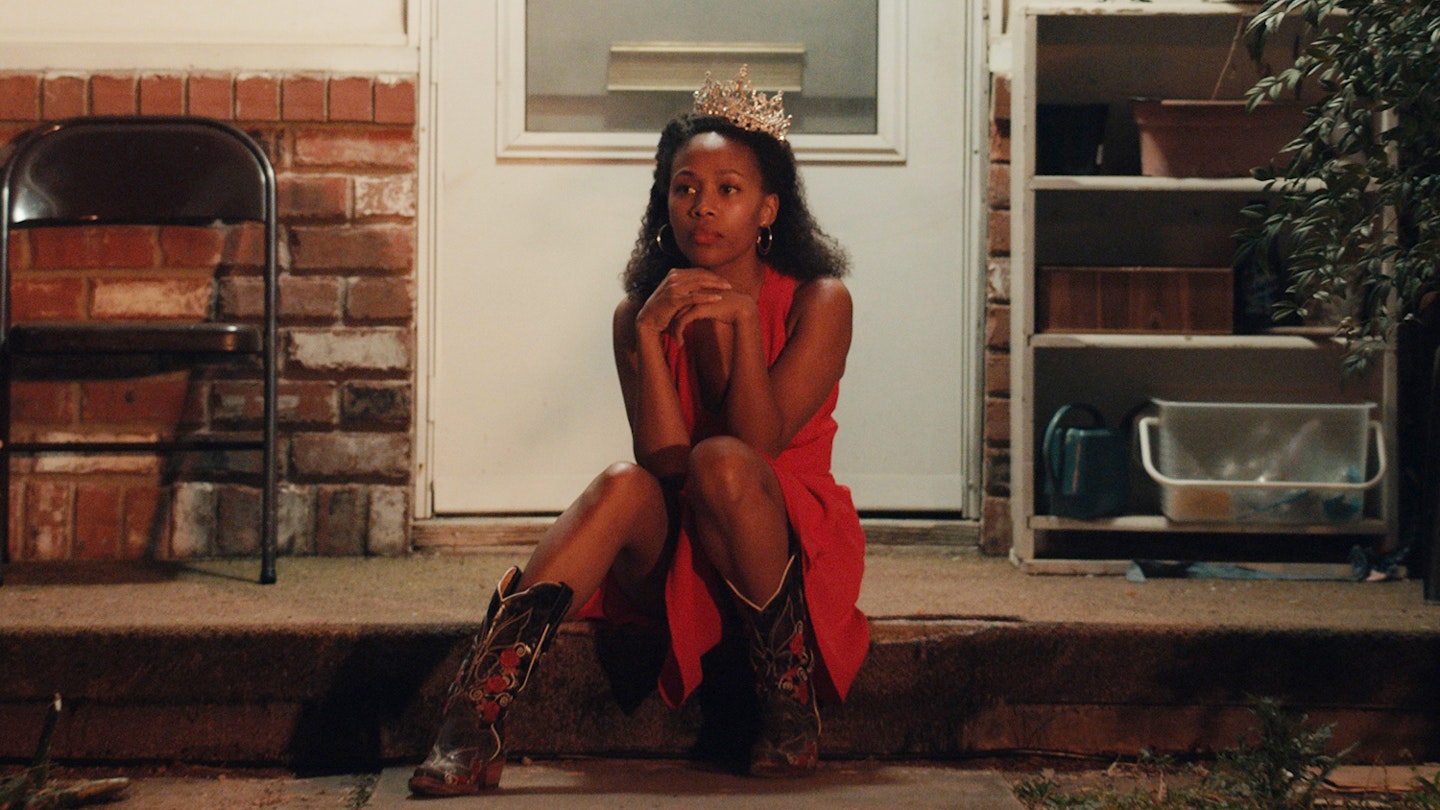Miss Juneteenth is an impressive first stride for Texan writer and director Channing Godfrey Peoples. Nominated for the Grand Jury Prize at Sundance and Best Texan Film at SXSW, Peoples turned her childhood trips to Miss Juneteenth, a pageant held to mark the emancipation of the enslaved on 19 June 1865, into this sumptuous, tender family drama.
The film gently etches the co-dependent mother-daughter relationship between Turquoise (Nicole Beharie) and Kai (newcomer Alexis Chikaeze). ‘Turq’ wants the world for her little girl, who’s blossoming into a headstrong woman under her watchful eye. Seeking affirmation from the world which her beauty crown failed to provide, she scrapes up tips from her bar job and hustles extra shifts at the morgue to find the money to put Kai in the running. Yet scrimping is tough when bills are overdue and Kai’s doting but flaky father (Kendrick Sampson) needs bail — further pushing her into the arms of ‘Bacon’ (Akron Watson), her funeral parlour boss.
The ride-or-die love between mother and daughter is the film’s bedrock.
The sway between Turq’s recollections of unfulfilled dreams and the reality of life on the grind make us compassionate towards her need to see her daughter crowned. But with femininity and beauty ideals weighted differently from one generation of Black American women to the next, Kai’s ideas of how to win don’t chime with her mother’s. The ride-or-die love between mother and daughter is still the film’s bedrock, entering a brood of warm, complex depictions of Black mothers and daughters such as Soul Food and Eve’s Bayou, and echoing the sisterhood of fellow Texan indie Support The Girls.
The premise is vulnerable to caving in to stereotypes of single mothers, Black men stuck in an unjust rut of incarceration and working-class life. Instead, Miss Juneteenth chips away at the tired tropes and judgments begin to vanish. Pageant dramas are also prone to taking a satirical view of participants, but the aspirations of these Black girls transcend simple good looks. They want to parade potential, and the prize of a scholarship to a ‘historically Black institution’ offers freedom their ancestors could only have imagined. Don’t worry, though — the film’s feminism isn’t letting pageants completely off the hook. We’re still invited to roll our eyes at the value of identifying a salad knife in etiquette scenes providing comic relief.
Where Peoples’ warm heart is evident is in her lived-in, welcoming world. The sense of hospitality makes you want to stay and order a drink at the bar full of people you want to know. If one thing’s amiss, it’s that we don’t spend more time with some characters, and a narrative involving Turq’s troubled mother feels unplumbed. But this is Turquoise’s story, and by beckoning us in, we see the world through the eyes of a mother who knows her daughter is capable of contributing to the next generation of Black women. Nicole Beharie is in almost every scene and she carries the film with ease. After Sleepy Hollow and bit-parts in Monsters And Men and Black Mirror, now she confidently assumes the driving seat and switches from anxious and stern, to loving and self-assured in the flick of a high-wattage smile.

